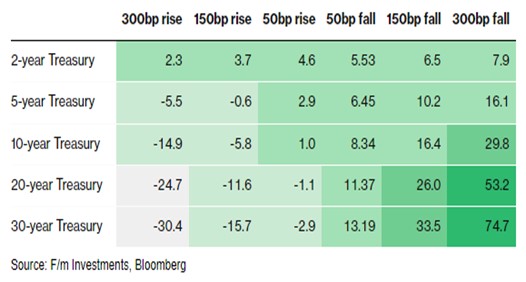As central banks pivot toward more accommodative monetary policies, the landscape for investors is shifting. A lowering interest rate environment, often implemented to stimulate economic activity, presents a mix of challenges and opportunities for portfolio management. For investors looking to optimize their strategies, understanding the nuances of these changes is not just important but empowering. It’s the key to making informed decisions in this evolving financial climate.
The Impact of Lower Interest Rates
Lower interest rates generally reduce the cost of borrowing, encouraging consumer spending and business investment. The fixed-income market has the most immediate impact on investors, where bond yields typically decrease as rates fall. While this can lower the return on newly issued bonds, it also increases the value of existing bonds, particularly those with longer durations.
Equities may also benefit, as lower borrowing costs can enhance corporate profitability, increasing stock prices. Cheaper financing options could also boost real estate investments. However, the strategies to effectively navigate this environment are varied and require careful consideration. This caution is not a sign of fear but of prudence, ensuring that every decision is well thought out and in the best interest of the portfolio.
Strategic Portfolio Adjustments
Investors should consider the following approaches to position their portfolios optimally in a lowering interest rate environment:
Leveraging Long-Duration Bonds
Increasing exposure to long-duration bonds is one of the most effective strategies in a declining interest rate environment. Long-duration bonds are more sensitive to changes in interest rates, meaning that as rates fall, the prices of these bonds typically rise more significantly than shorter-duration bonds. This price appreciation can provide substantial capital gains, making long-duration bonds attractive for those seeking to benefit from a lowering rate environment.
Investors should, however, be aware of the associated interest rate risk. If rates unexpectedly rise, long-duration bonds can suffer more significant price declines. To mitigate this risk, consider diversifying across different types of bonds or balancing with shorter-duration bonds, which are less sensitive to interest rate changes.
Estimated 12-month total returns based on different yield movements

Emphasizing Dividend-Paying Stocks
With the potential for lower bond yields, dividend-paying stocks become increasingly attractive. These stocks offer a steady income stream, often surpassing the yields available in the fixed-income market during low-rate periods. Sectors like utilities, consumer staples, and real estate investment trusts (REITs) are mainly known for reliable dividends, providing both income and potential for capital appreciation.
Exploring Real Estate Opportunities
The real estate sector often thrives when interest rates are low, as borrowing costs decrease, making property investments more affordable and attractive. Investors can gain exposure to this sector through direct real estate purchases or by investing in REITs, which offer a way to invest in real estate without the responsibilities of direct ownership.
Conclusion
As the global financial landscape adapts to a new era of lower interest rates, investors must proactively re-evaluate their strategies. Long-duration bonds, dividend-paying stocks, and real estate investments can all be crucial in navigating this environment. By understanding these dynamics and making informed adjustments, investors can position their portfolios to thrive amidst changing economic conditions.

